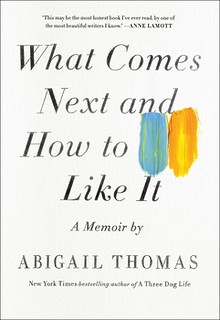My youngest niece--of money-growing purse fame--turned six earlier this month, as I've heard her announce loudly to anyone unfortunate enough to mistakenly refer to her as five. Her heartfelt pronouncement, "I'm six!" reminds me of an animated bit that used to run on Sesame Street years ago (and may still for all I know), in which a little boy sits up in bed first thing in the morning and says, "I'm six years old today! I'm six years old today!" and then he leaps out of bed and begins bouncing around his room, singing, "I'm six! I'm six! I'm six years old today!"
Strange--when it's 36 (and then some), the impulse to dance around is considerably diminished.
Don't think, though, that I'm complaining about getting old (or older). I'm not of that mindset--at least not yet. Whenever I feel the urge to be overly sensitive of my age, I remind myself to consider the alternatives. It's get older or die, you know? I'm not sure how much longer that pragmatic approach will work in the face of wrinkles, creases and sags (Wrinkles, creases and sags! Oh my!), but for now, it's holding up.
In other age-related news, my next-to-the-youngest niece, older sister to Little Miss "I'm Six," saw me scribbling away in my trusty spiral notebook the other day. She said, "Do you want to be an author when you grow up?"
Now, if she were a few years older, that remark may've been laced with mockery and sarcasm (as are most comments out of the mouths of those in the early double-digit years of adolescence). After all, duh, I am a grown-up, right? And if I were gonna be anything when I grew up, one would think I might have wanted to get started on it sometime before now. But since my niece is only eight and said it with such sweet sincerity, it got me thinking about how even when we're stuck in the rut of our real lives and we think to ourselves, duh, it's too late for me to be anything different "when I grow up," maybe all those possibilities are still out there and maybe I'm not quite as grown up as I thought.
Misfits and Lost Things
4 days ago

